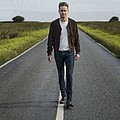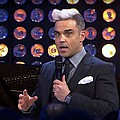The great Scottish singer and song writer Jackie Leven passed away on Monday, 14th November, at 8 o'clock in the evening. He had suffered from cancer.
"There are spiritual story tellers and there are soulful story tellers. I hope to be a soulful story teller. I see the two kinds as two different directions. Spiritual is ascending. Sky, God and all that. I hope my story telling is going down into the earth, is wetter, has more moisture." Jackie Leven
Born on June 18th 1950 in Kirkcaldy, Fife, Scotland, Jackie Leven had a richer and more eventful life to draw inspiration from than most other dedicated followers of the bardic tradition. And when Leven sang so sonorously of the depths of pain he knew what he was singing about as much as when he sang of wild adventures in far flung places in Europe, love found and lost in a drab corner of Birmingham, and defiantly different loners like the Irish transsexual hitman who was the inspiration behind the title-track of his 2008 album "Lovers at the Gun Club".
Childhood taught Jackie Leven what it meant to be an outsider. His father an Irish Cockney, his mother a Geordie, the family were treated as intruders by the close-knit and conservative Glenrothes community, especially as they also came from a Romany background. Typical for Jackie's rollercoaster life is the time in the early 1960s when he won the national Scottish Round Table School Essay competition (he had written about his dream of becoming a travelling musician) only to become the first boy in Scotland a few weeks later to be expelled from school for the possession of drugs. Married at 16, Jackie worked in a missile factory when, at 17, he became the target of a local gang that prevented him from returning home for weeks. In the end, Jackie grabbed his guitar and began a peripatetic life that lasted well over a decade. He worked as a farm labourer in all corners of Britain, spent time by the wall in Berlin, lived in County Kerry, Ireland, and ended up in Madrid where, under the name John St.Field, he released his first album, "Control" (the title is not without ironic undertone, since Spain was then still under the rule of the dictator Franco).
Back in London, on the cusp between Punk and New Wave, Leven formed Doll By Doll, a band whose ferociously intense Rock sound and existential lyrics were at odds with the much more playful attitudes prevalent at the time. Like all truly innovative bands, Doll By Doll sharply divided opinions. Unforgettable to anyone who ever experienced them live, they were several years too early for their own good. "People used to say that our songs were depressing." remembers Leven: "What the fuck were they talking about? I cannot hear them as depressing at all. Probably they meant depressing to us the record company because we know we can't sell it."
Doll By Doll released four albums – the last of which numbered Pink Floyd's David Gilmour amongst the guest musicians – before splitting up in 1983. Shortly after, Leven signed a solo record deal with the then laudably diverse Charisma/Virgin Records – it was an act that changed his life in a tragic and not at all anticipated way. Walking down Market Street in Islington late at night after a recording session, he was attacked at random by a complete stranger, strangled and slashed across the throat. He was unable to speak for several months before discovering he had also been robbed of his ability to sing falsetto. Leven turned to heroin for solace. For several years, the drug became the centre of his life. First, he painfully but successfully weaned himself off the drug thanks to a course of traditional Chinese five-element acupuncture as well as psychic healing. Following his recovery, he co-founded the CORE Trust, an organisation still operating today in the central London and dedicated to a holistic approach to dealing with addiction.
The first public signs of Jackie's re-birth as an artist came in 1994 when he released two new albums, "Songs from the Argyll Cycle, Volume 1" (a "Scotland only release", said the sleeve), and the richly textured "The Mystery of Love is Greater than the Mystery of Death", a cast-in-stone classic that featured in a good number of "best of the year" lists that December and served to define Jackie's style ever since. Helping him on an album that combined Rock with hints of Blues and Gospel and melodies steeped in Scottish and Irish tradition, were Waterboy Mike Scott as well as the American poet Robert Bly whose "Men's Movement" philosophy Leven admired at the time. "I didn't have a conscious aim in the sense of a manifesto," says Leven. "But I think I wanted to be a severe writer. I like things that are severe. That doesn't mean I like harsh music or harsh art. But I love it when someone puts you into that intense moment of what they're doing. I can't live without that in my own writing. Nothing would ever shake me from that intense, severe thing in the song."
Those two albums in 1994 marked the start of a exceptionally varied and fecund second artistic life for Jackie. He has released twenty-four albums since, all of which are filled to the brim with his unique sense of melody, dramatic story-telling and lyrical depth. Amongst these, in 2004, was "Jackie Leven Said", a remarkable recording of the combined forces of Leven and a long-term fan, the Scottish author Ian Rankin, creator of the hard-drinking, hard-thinking Edinburgh cop D.I. John Rebus. Around the same time, the fascinating pairing of Leven and Pere Ubu himself, David Thomas, could be seen performing in various European venues under the heading Ubudoll.
The usual music business habit of releasing a new album every two years or so was no longer enough to contain the thick flow of music generated by Jackie Leven's intense muse. This was, of course, a reflection of Jackie's similarly intense thirst for life. Those who knew him best tell of a bear of a man bursting with wit, humour and spirit, always springing a trick or two on unsuspecting friends, and counting amongst his greatest achievements a whiskey called "Leven's Lament", especially bottled in his honour by the Scottish distillers of Islay Mist. Long after having eased himself into a more settled life in rural Hamphsire, he still set off once a year with a sleeping bag and a handful of books for a very long walk in the countryside. Jackie's creative force was unstoppable. In 2009 alone he released no fewer than five albums. Four of these contained two albums each that had previously been available only through "The Haunted Valley", a sort of secret society that published a quarterly magazine and one album a year for the inner circle of Leven-appreciators. In the same year, 2009, Leven also released his third album under the pseudonym Sir Vincent Lone, an alter ego invented for the sole purpose of creating more room to release records and to give vent to some of his more experimental ideas.
After that, Jackie Leven released two more albums, "Gothic Road" (2010) and "Wayside Shrines and the Code of the Travelling Man" (2011), the latter featuring – as have many of the albums before – Michael Cosgrave. It featured songs written mostly in German and Austrian hotel rooms. Martin Goldschmidt, the Cooking Vinyl Records founder, another long-standing Leven fan who has released all Jackie's albums since "Argyll Cycle", rightly regards it as Jackie's best album after "The Mystery of Love...". Jackie, with a typical twinkle in the eye, described it as "the world's first homeopathic record": "In the true homeopathic way, we have taken a sound – in this case a sound which represents grief – grieving is something we are not so good at in the West, and we have diluted that sound in the songs so much that you can no longer hear it, but the "memory" of the sound is still there. For this reason, the more you listen to this record, the better you will feel about the real sadness in your life."
Jackie Leven news









